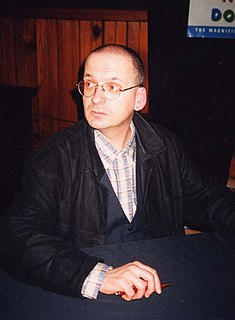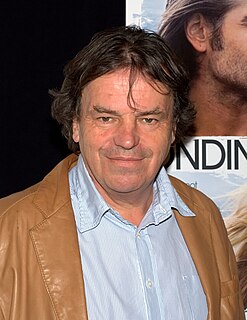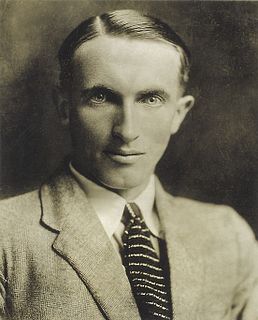 W
WJohn Banim, was an Irish novelist, short story writer, dramatist, poet and essayist, sometimes called the "Scott of Ireland." He also studied art, working as a painter of miniatures and portraits, and as a drawing teacher, before dedicating himself to literature.
 W
WSamuel Barclay Beckett was an Irish novelist, playwright, short story writer, theatre director, poet, and literary translator. A resident of Paris for most of his adult life, he wrote in both French and English.
 W
WBrendan Francis Aidan Behan was an Irish poet, short story writer, novelist and playwright who wrote in both English and Irish. He was named by Irish Central as one of the greatest Irish writers of all time.
 W
WDavid Butler is an Irish novelist, short story writer, playwright, and poet. He has won several literary prizes, such as the Ted McNulty Award from Poetry Ireland and the Féile Filíochta International Award and the Fish Short Story Award.
 W
WWilliam Carleton was an Irish writer and novelist. He is best known for his Traits and Stories of the Irish Peasantry, a collection of ethnic sketches of the stereotypical Irishman.
 W
WBrian Brendon Talbot Cleeve was a writer, whose published works include twenty-one novels and over a hundred short stories. He was also an award-winning broadcaster on RTÉ television. Son of an Irish father and English mother, he was born and raised in England. He lived in South Africa during the early years of National Party rule and was expelled from the country because of his opposition to apartheid. In his early thirties he moved to Ireland where he lived for the remainder of his life. In late middle age he underwent a profound spiritual experience, which led him to embrace mysticism. He developed a model for the spiritual life based on the principle of obedience to the will of God.
 W
WFreeman Wills Crofts FRSA was an Irish mystery author, best remembered for the character of Inspector Joseph French.
 W
WRoddy Doyle is an Irish novelist, dramatist and screenwriter. He is the author of eleven novels for adults, eight books for children, seven plays and screenplays, and dozens of short stories. Several of his books have been made into films, beginning with The Commitments in 1991. Doyle's work is set primarily in Ireland, especially working-class Dublin, and is notable for its heavy use of dialogue written in slang and Irish English dialect. Doyle was awarded the Booker Prize in 1993 for his novel Paddy Clarke Ha Ha Ha.
Jack Harte is an Irish short story writer and novelist. He founded the Irish Writers' Union and the Irish Writers Centre.
 W
WAidan Higgins was an Irish writer. He wrote short stories, travel pieces, radio drama and novels. Among his published works are Langrishe, Go Down (1966), Balcony of Europe (1972) and the biographical Dog Days (1998). His writing is characterised by non-conventional foreign settings and a stream of consciousness narrative mode. Most of his early fiction is autobiographical - "like slug trails, all the fiction happened."
 W
WNeil Patrick Jordan is an Irish film director, screenwriter, novelist and short-story writer. His first book, Night in Tunisia, won a Somerset Maugham Award and the Guardian Fiction Prize in 1979. He won an Academy Award for The Crying Game (1992). He has also won three Irish Film and Television Awards, as well as the Silver Bear for Best Director at the Berlin International Film Festival for The Butcher Boy (1997).
 W
WJames Augustine Aloysius Joyce was an Irish novelist, short story writer, poet, teacher, and literary critic. He contributed to the modernist avant-garde movement and is regarded as one of the most influential and important writers of the 20th century. Joyce is best known for Ulysses (1922), a landmark work in which the episodes of Homer's Odyssey are paralleled in a variety of literary styles, most famously stream of consciousness. Other well-known works are the short-story collection Dubliners (1914), and the novels A Portrait of the Artist as a Young Man (1916) and Finnegans Wake (1939). His other writings include three books of poetry, a play, his published letters and occasional journalism.
 W
WJoseph Thomas Sheridan Le Fanu was an Irish writer of Gothic tales, mystery novels, and horror fiction. He was a leading ghost story writer of his time, central to the development of the genre in the Victorian era. M. R. James described Le Fanu as "absolutely in the first rank as a writer of ghost stories". Three of his best-known works are the locked-room mystery Uncle Silas, the lesbian vampire novella Carmilla, and the historical novel The House by the Churchyard.
 W
WBrian Leyden is an Irish writer from Arigna, County Roscommon and currently living in County Sligo. He has published the best selling memoir The Home Place, the short story collection Departures, and the novel Death and Plenty. He won the RTÉ Radio 1 Francis MacManus Award in 1988 for The Last Mining Village. He has written extensively about his home area for RTÉ's Sunday Miscellany and the Doc on One: No Meadows in Manhattan, Even the Walls Were Sweatin’, The Closing of the Gaiety Cinema in Carrick-on-Shannon and Practical Rooms and Pre-Fabs. He co-wrote the original screenplay for the feature film Black Ice, which premiered at the Jameson Dublin International Film Festival 2013.
 W
WColum McCann is an Irish writer of literary fiction. He was born in Dublin, Ireland, and now lives in New York. He is a Distinguished Professor of Creative Writing in the Master of Fine Arts program at Hunter College, New York, with fellow novelists Peter Carey and Tea Obreht, and has visited many universities and colleges all over the world.
 W
WMike McCormack is an Irish novelist and short-story writer. He has published two collections of short stories, Getting It In the Head and Forensic Songs and three novels - Crowe's Requiem, Notes from a Coma and Solar Bones. He has been described as "a disgracefully neglected writer".
 W
WJohn McGahern was an Irish writer and novelist. He is regarded as one of the most important writers of the latter half of the twentieth century.
 W
WGeorge Augustus Moore was an Irish novelist, short-story writer, poet, art critic, memoirist and dramatist. Moore came from a Roman Catholic landed family who lived at Moore Hall in Carra, County Mayo. He originally wanted to be a painter, and studied art in Paris during the 1870s. There, he befriended many of the leading French artists and writers of the day.
 W
WFitz James O'Brien was an Irish American Civil War soldier, writer, and poet often cited as an early writer of science fiction.
 W
WMáirtín Ó Cadhain was one of the most prominent Irish language writers of the twentieth century. Perhaps best known for his 1949 work Cré na Cille, Ó Cadhain played a key role in bringing literary modernism to contemporary Irish language literature. Politically, he was an Irish nationalist and socialist, promoting the Athghabháil na hÉireann, through Gaelic culture. He was a member of the post-Civil War Irish Republican Army with Brendan Behan during the Emergency.
 W
WBilly O'Callaghan is an Irish short fiction writer and novelist. He is best known for his short-story collection The Things We Lose, The Things We Leave Behind, which was awarded the Bord Gáis Energy Irish Book Award for the short story in 2013 and his widely-translated novel My Coney Island Baby, which was shortlisted for the Royal Society of Literature's Encore Award.
 W
WFrank O'Connor was an Irish writer of over 150 works, best known for his short stories and memoirs. The Frank O'Connor International Short Story Award is named in his honour.
 W
WSeán Proinsias Ó Faoláin (1900–1991) was one of the most influential figures in 20th-century Irish culture. A short-story writer of international repute, he was also a leading commentator and critic.
 W
WLiam O'Flaherty was a major Irish novelist, short-story writer and must be ranked as one of the foremost socialist writers in the first part of the 20th century, writing about the common people's experience and from their perspective. Others are Seán O'Casey, Pádraic Ó Conaire, Peadar O'Donnell, Máirtín Ó Cadhain, and Seosamh Mac Grianna, all of them Irish language speakers who chose to write either in Irish or English.
 W
WBreandán Ó hEithir was an Irish writer and broadcaster.
 W
WEdward John Moreton Drax Plunkett, 18th Baron of Dunsany, was an Anglo-Irish writer and dramatist; his work, mostly in the fantasy genre, was published under the name Lord Dunsany. More than ninety books of his work were published in his lifetime, and both original work and compilations have continued to appear. Dunsany's œuvre includes many hundreds of published short stories, as well as plays, novels and essays. He achieved great fame and success with his early short stories and plays, and during the 1910s was considered one of the greatest living writers of the English-speaking world; he is today best known for his 1924 fantasy novel The King of Elfland's Daughter and The Gods of Pegāna, wherein he devised his own fictional pantheon and laid the groundwork for the fantasy genre. He was the inventor of an asymmetric version of chess called Dunsany's chess.
 W
WKevin Power is an Irish writer and academic. He currently teaches in the School of English at Dublin City University. He writes regularly for The Sunday Business Post. His novel Bad Day in Blackrock was published by The Lilliput Press, Dublin, in 2008 and filmed in 2012 as What Richard Did. In April 2009 Power received the 2008 Hennessy XO Emerging Fiction Award for his short story "The American Girl" and was shortlisted for RTÉ's Francis MacManus short story award in 2007 for his piece entitled "Wilderness Gothic". He is the winner of the 2009 Rooney Prize for Irish Literature.
 W
WEsmé Stuart Lennox Robinson was an Irish dramatist, poet and theatre producer and director who was involved with the Abbey Theatre.
 W
WRichard Rowley was the pseudonym of Richard Valentine Williams, born at 79 Dublin Road, Belfast, Ireland, who wrote poetry, plays and stories.
 W
WJames Stephens was an Irish novelist and poet.
 W
WAbraham "Bram" Stoker was an Irish author, best known today for his 1897 Gothic horror novel Dracula. During his lifetime, he was better known as the personal assistant of actor Sir Henry Irving and business manager of the Lyceum Theatre, which Irving owned.
 W
WColm Tóibín FRSL, is an Irish novelist, short story writer, essayist, playwright, journalist, critic, and poet.